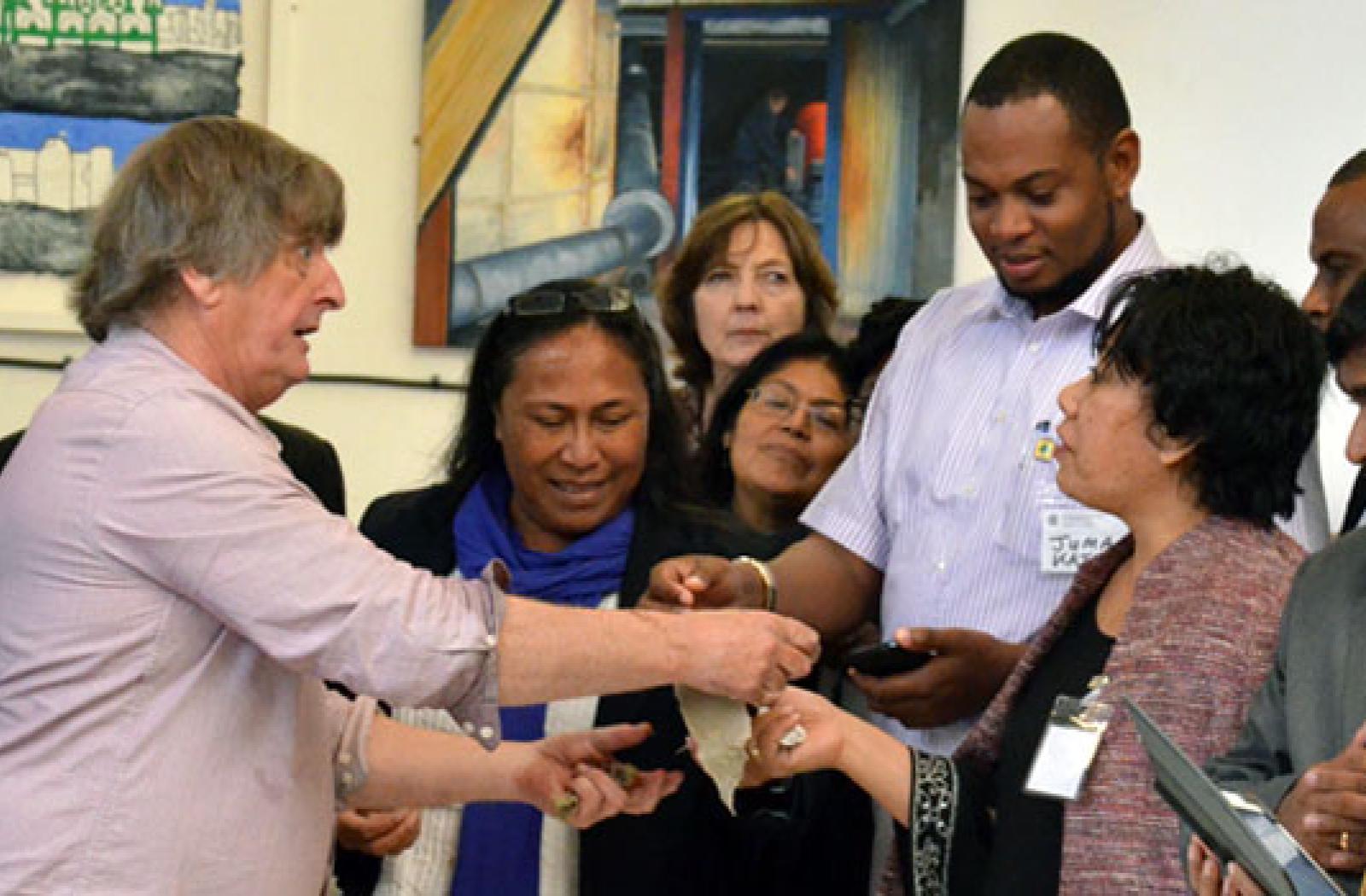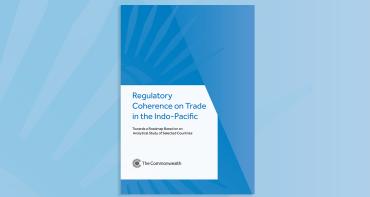Across the Commonwealth, there are many fibrous plants that can serve as the basis for industries producing crafts, fabrics and furniture

At a recent international forum on civic education and national integration in Yaoundé, Cameroon, guests were given conference papers contained in leather bags. A few others had their papers contained in bags made from coconut and banana fibres. When asked who had made the bags, we were told the leather bags were imported and branded locally, while the fibre bags were made by local crafts men and women using local materials.
The sight of the bags made of natural fibres quickly brought to mind discussions at a Commonwealth natural fibre partnership meeting that took place in London from 25 to 27 June 2013. Participants from several Commonwealth countries and beyond shared experiences on how to grow the natural fibre industry. It was amazing to hear about the spread and breath of items that could be made from natural fibres, for instance, from banana suckers: mats, hats, ropes, phone and laptop covers, straws, and all manner of crafts.
In my mind, I thought about how much of a boost to the incomes of local households could have been made if all the conference bags at the Yaoundé meeting had been made from natural fibres. The conference attracted over 2,000 participants.
The thought resonated with what Watipaso Mkandawire, an enterprise adviser at the Commonwealth Secretariat whose section convened the London forum, told the group: that natural fibres have the potential to create jobs, improve livelihoods, raise household incomes and reduce poverty.
“But it requires innovation to be able to think outside the box and increase the range and quality of products that can be made from natural fibres,” said Dr Lester Mills from the Switzerland-based chemical company BASF, who gave the key note address.
“We need to learn to use different natural fibre materials in different ways to make new products, save energy and satisfy the needs of a growing population,” he added.
“Innovation is the key that will drive sustainable solutions in the natural fibre sector.”.
And when a participant from Asia outlined over 30 items that could be made from the trunks of banana stalks, everyone in the room was left excited at what a little push on awareness raising, coupled with appropriate technology can do.
And the good news is that across the Commonwealth, there are many fibrous plants that can serve as the basis for industries producing crafts, fabrics and furniture. From Swaziland to Uganda, Sri Lanka to Vanuatu, Guyana to St Lucia, Ghana to Tanzania, a vast array of banana plants, coconut trees, sisal and many other plants are grown, either naturally or planted.
And with all the talk about protecting the environment and a move away from plastics, natural fibres have tremendous potential as a substitute for commonly-used synthetics. But to do that requires mobilising the communities, training the artisans and equipping them with skills to tap into the market around them and beyond.
The business opportunities presented by the harnessing and processing of natural fibres hold the promise of huge growth, especially given the fact that consumers in developed countries are increasingly interested in choosing ‘environmentally friendly’ products and ‘going green’. The global market for the creative industry alone where these products can be sold is US$250 billion.
“The challenge we have often found in the field is that people make the same type of products and find themselves competing amongst one another in a narrow market. With a little bit of awareness, skills upgrade and standardisation, we can enable them to increase the range of items and expand their market,” noted Mr Mkandawire.
The meeting at The Commonwealth Club in London brought together several actors in the natural fibre industry to compare notes on how they could advance the objectives of a global forum on the development and use of natural fibres to spur national development.
The Food and Agriculture Organization (FAO) estimates that worldwide trade in natural fibres is worth about US$30 billion a year, and that some 30 million tonnes of natural fibres are produced annually.
But how much of these million tonnes ends up in productive use remains the question. In most countries a lot of the fibres go to waste and are treated as trash.
To bring a spotlight on this issue, FAO declared 2009 an ‘International Year for Natural Fibres’. In support of this effort, the Commonwealth Secretariat held a Pan-Commonwealth Natural Fibre Skills Development Programme in Bangalore, India, in June 2009. It was at that Bangalore meeting that the idea mooting the establishment of the Global Natural Fibre Forum (GNFF) was born.
Established in March 2012, the GNFF aims to become a global knowledge platform and facilitate the building of a better ecosystem for production, processing and use of natural fibres. It is a network across the globe of producers, retailers, researchers, designers, artisans, cooperatives, self-help groups, suppliers, financiers and organisations.
The main objective of the GNFF when it was established was to promote exploiting natural fibres on a larger scale and to their full potential.
The London meeting also featured a visit to Frogmore Paper Factory, the world’s first mechanised paper mill in Apsley, UK.
Participants were taken through the different methods of making paper - from hand-made processes, where special types of paper are made from old denim jeans, to the simple mechanised paper making from discarded boxes. At one session, the group was shown innovative ways of using paper and natural fibres to produce building materials such as blocks, tiles, and ceiling boards.
José Maurel, Director of Special Advisory Services at the Commonwealth Secretariat, who opened the three-day forum in London said the Secretariat is committed to assisting member countries to explore different ways of creating jobs, particularly for women and young people through the provision of strategic advisory training and skills development. He said the creation of the GNFF, with Commonwealth support, was one such effort to foster partnerships and business ventures.



